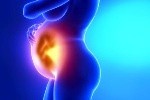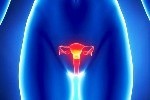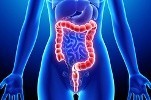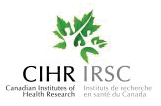Why do miscarriage occure?
Miscarriage is the most common type of pregnancy loss, according to the American College of Obstetricians and Gynecologists (ACOG). Studies reveal that anywhere from 10-25% of all clinically recognized pregnancies will end in miscarriage, chemical pregnancies may account for 50-75% of all miscarriages.
Most miscarriages occur during the first 13 weeks of pregnancy. Pregnancy can be such an exciting time, but with the great number of recognized miscarriages that occur, it is beneficial to be
informed about miscarriage, in the unfortunate event that you find yourself or someone you know faced with one.
The following information gives a broad overview of miscarriage. This information is provided to help equip you with knowledge so that you might not feel so alone or lost if you face a possible miscarriage situation. As with most pregnancy complications, remember that the best person you can usually talk to and ask questions of is your health care provider.
Why are the chances of having a miscarriage?
The reason for miscarriage is varied, and most often the cause cannot be identified. During the first trimester, the most common cause of miscarriage is chromosomal abnormality - meaning that something is not correct with the baby's chromosomes. Most chromosomal abnormalities are the cause of a damaged egg or sperm cell, or are due to a problem at the time that the zygote went through the division process. Other causes for miscarriage include (but are not limited to):
• Hormonal problems, infections or maternal health problem
• Lifestyle (i.e. smoking, drug use, malnutrition, excessive caffeine and
exposure to radiation or toxic substances)
• Implantation of the egg into the uterine lining does not occur properly
• Maternal age
• Maternal trauma
Factors that are not proven to cause miscarriage are sex, working outside the home (unless in a harmful environment) or moderate exercise.
For women in their childbearing years, the chances of having a miscarriage can range from 10-25%, and in most healthy women the average is about a 15-20% chance.
• An increase in maternal age affects the chances of miscarriage
• Women under the age of 35 yrs old have about a 15% chance of miscarriage
• Women who are 35-45 yrs old have a 20-35% chance of miscarriage
• Women over the age of 45 can have up to a 50% chance of miscarriage
• A woman who has had a previous miscarriage has a 25% chance of having
• Another (only a slightly elevated risk than for someone who has not had a
previous miscarriage)
The sign of miscarriage
If you experience any or all of these symptoms, it is important to contact your health care provider or a medical facility to evaluate if you could be having a miscarriage:
• Weight loss
• White-pink mucus
• True contractions (very painful happening every 5-20 minutes)
• Brown or bright red bleeding with or without cramps (20-30% of all
pregnancies can experience some bleeding in early pregnancy, with
about 50% of those resulting in normal pregnancies)
• Tissue with clot like material passing from the vagina
• Sudden decrease in signs of pregnancy
Contact Us
Chalmers Medical Building
328 Hwy 7 East Suite 201,
Richmond Hill ON L4B 3P7
Tel: 416 399-3888
E-mail: info@aahclinic.com
Conditions Treated
Effective Herbal Therapy for Inflammatory Bowel Disease
NO Surgery!
Carolyn XU Treats Ulcer Colitis Successfully
Considering Therapy?
Resource Links
References
Donation
Great things happen when you put your heart into it.
Click Here to Send us your request
Tips
Questions about your first appointment or if your insurance will cover the cost? Find more information below.















